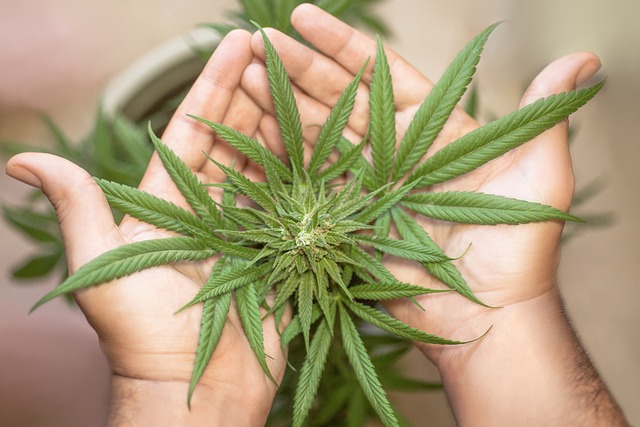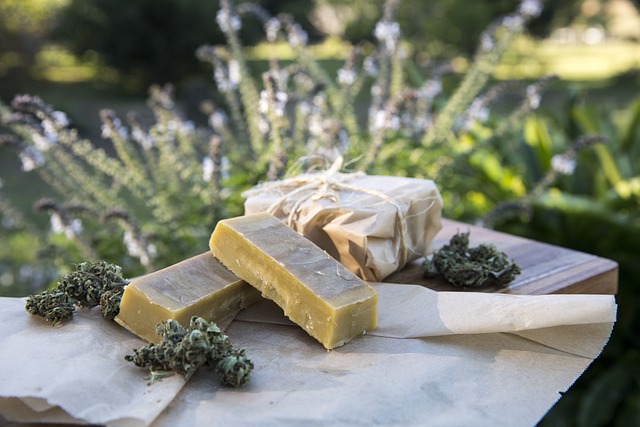2023 marked a pivotal year for THCA legality and market presence in Michigan. Despite THC derived from THCA being legal under state law after decarboxylation, the status of raw THCA flower remains ambiguous due to varying local regulations. This has led to a complex, location-dependent legal landscape for consumers and businesses alike. In response to this evolving regulatory environment, there's a growing market for THCA flower tips, which offer therapeutic benefits without psychoactive effects. The 2018 Farm Bill paved the way for these products by legalizing hemp-derived cannabinoids with less than 0.3% THC. In Michigan, where both medical and recreational cannabis are legalized, THCA flower tips have become a popular alternative, reflecting a broader trend towards wellness and holistic health within the state's cannabis industry. It's important for anyone interested in engaging with these products to stay informed about the changing laws and local regulations to ensure compliance and responsible use of THCA in Michigan.
explore the nuances of THCA flower, a non-psychoactive precursor to THC, gaining traction in Michigan’s cannabis market. This article delves into its legal status, emergence as a prominent cannabinoid, and how it differs from processed products. We guide you through purchasing legally, cultivating your own with due diligence, and understanding the effects of THCA. Key factors such as storage, decarboxylation, potency labels, and terpene profiles are examined within the unique climate of Michigan. As regulations evolve, this comprehensive overview also predicts future trends for medical and recreational users, ensuring you’re well-informed about THCA’s role in the state’s cannabis industry.
- Understanding THCA Flower and Its Legal Status in Michigan
- The Emergence of THCA as a Prominent Cannabinoid in Michigan's Market
Understanding THCA Flower and Its Legal Status in Michigan

In recent years, the cannabis industry has seen a significant shift with the emergence of THCA (Tetrahydrocannabinolic Acid), a non-psychoactive precursor to THC (Tetrahydrocannabinol). As researchers and enthusiasts delve deeper into the potential benefits of THCA, its presence in flower form has garnered attention. THCA flower contains high concentrations of THCA as opposed to other cannabinoids and is often used for its therapeutic properties before being decarboxylated to activate its psychoactive effects. In Michigan, where medical marijuana has been legal since 2008 and adult-use cannabis was legalized in 2018, understanding the legal status of THCA flower is crucial for consumers and dispensaries alike. As of my knowledge cutoff in 2023, THCA itself exists in a legal gray area. While THC derived from THCA through decarboxylation is legal under state law, the sale or possession of THCA flower has been subject to varying interpretations by different authorities within Michigan. This has led to a dynamic landscape where regulatory clarity remains somewhat elusive, with local jurisdictions having the discretion to regulate the sale and distribution of raw cannabis, including THCA flower, even if it’s not explicitly banned by state law. Navigating this complex legal environment is essential for anyone interested in or involved with THCA products in Michigan. It’s important for consumers to stay informed about the latest regulations and court decisions that could impact their access to THCA flower and other cannabis-related products.
The Emergence of THCA as a Prominent Cannabinoid in Michigan's Market

2023 has marked a significant shift in Michigan’s cannabis landscape with the rise of THCA flower tips, a cannabinoid that’s been gaining attention for its potential therapeutic properties. As THCA products become more readily available and legally permissible under Michigan’s evolving regulations, consumers and enthusiasts are exploring the benefits of this raw form of cannabis. THCA, or tetrahydrocannabinolic acid, is the precursor to THC, the psychoactive compound found in cannabis. Unlike its psychoactive counterpart, THCA is non-psychoactive, offering users a different experience that’s said to have anti-inflammatory and pain-relieving effects without the high associated with THC.
The legalization of hemp-derived products containing less than 0.3% THC at the federal level under the 2018 Farm Bill has paved the way for innovations in cannabinoid research and product development. In Michigan, where both medical and adult-use cannabis are legal, the market has seen a surge in interest for THCA flower tips. These products are celebrated for their versatility; they can be smoked, vaporized, or infused into edibles, offering consumers a range of consumption methods. The emergence of THCA as a prominent cannabinoid aligns with the state’s progressive stance on cannabis, providing an array of options that cater to diverse preferences and health needs. As such, Michigan’s market is becoming a hotbed for THCA-rich products, reflecting a broader trend towards wellness and holistic health solutions within the cannabis industry.
In conclusion, the emergence and growing popularity of THCA flower in Michigan have significantly shaped its cannabis market, with the compound’s legal status clearly defined within the state. As regulatory frameworks continue to evolve, enthusiasts and consumers can look forward to a more robust understanding and utilization of THCA’s unique properties. The potential therapeutic benefits, coupled with its distinct effects compared to other cannabinoids, make it an intriguing option for those interested in the broader cannabis landscape within Michigan’s legal boundaries.
